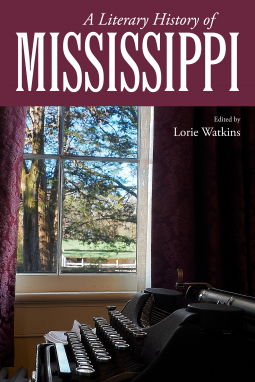 On December 10, 1817, Mississippi became the twentieth state, and it seems fitting to acknowledge one of its greatest contributions to the union, indeed to the world at large on this significant birthday. We Mississippians come last on many lists, but most scholars note the disproportional number of literary giants the state has produced and wonder why. A book that will help you if you want to get some proof and look at some reasoning for this achievement is A Literary History of Mississippi, published by University Press of Mississippi and edited by Lorie Watkins.
On December 10, 1817, Mississippi became the twentieth state, and it seems fitting to acknowledge one of its greatest contributions to the union, indeed to the world at large on this significant birthday. We Mississippians come last on many lists, but most scholars note the disproportional number of literary giants the state has produced and wonder why. A book that will help you if you want to get some proof and look at some reasoning for this achievement is A Literary History of Mississippi, published by University Press of Mississippi and edited by Lorie Watkins.
Chapters are both interesting and scholarly, written by experts about that particular period of Mississippi literature or the authors who are the chapter’s focus. The first few chapters cover the field chronologically beginning with indigenous writers and oral storytellers, moving through the designation at that time in history of Old Southwest frontier literature with rural and backwoods settings, on to the Civil War writings, and slave narratives. The next section focuses a chapter each on Mississippi literary giants – William Faulkner, Eudora Welty, Tennessee Williams, and Margaret Walker. The final section moves back to a general take on the modern-day writers, who seem to rise like kudzu in the field of popular literature, poetry, song-writing, biography, and the briefer forms of essays and short stories. One of these new writers, Jesmyn Ward, won the National Book Award for Sing, Unburied, Sing after this volume was published.
The volume is a good overview of Mississippi literature with condensed life stories and listings of the works of several major authors. It is a helpful guide to anyone interested in reading Mississippi tales (the essence of being Southern in one view), in finding or reviewing the times that motivated the writer, or in seeing how place influenced the narrative. An answer is given at the end about how such a disproportional number of writers came to be from this place. After pondering whether it is in the air we breathe or the water we drink, their answer was expressed in a more erudite way, but it amounted to “Beats me!”